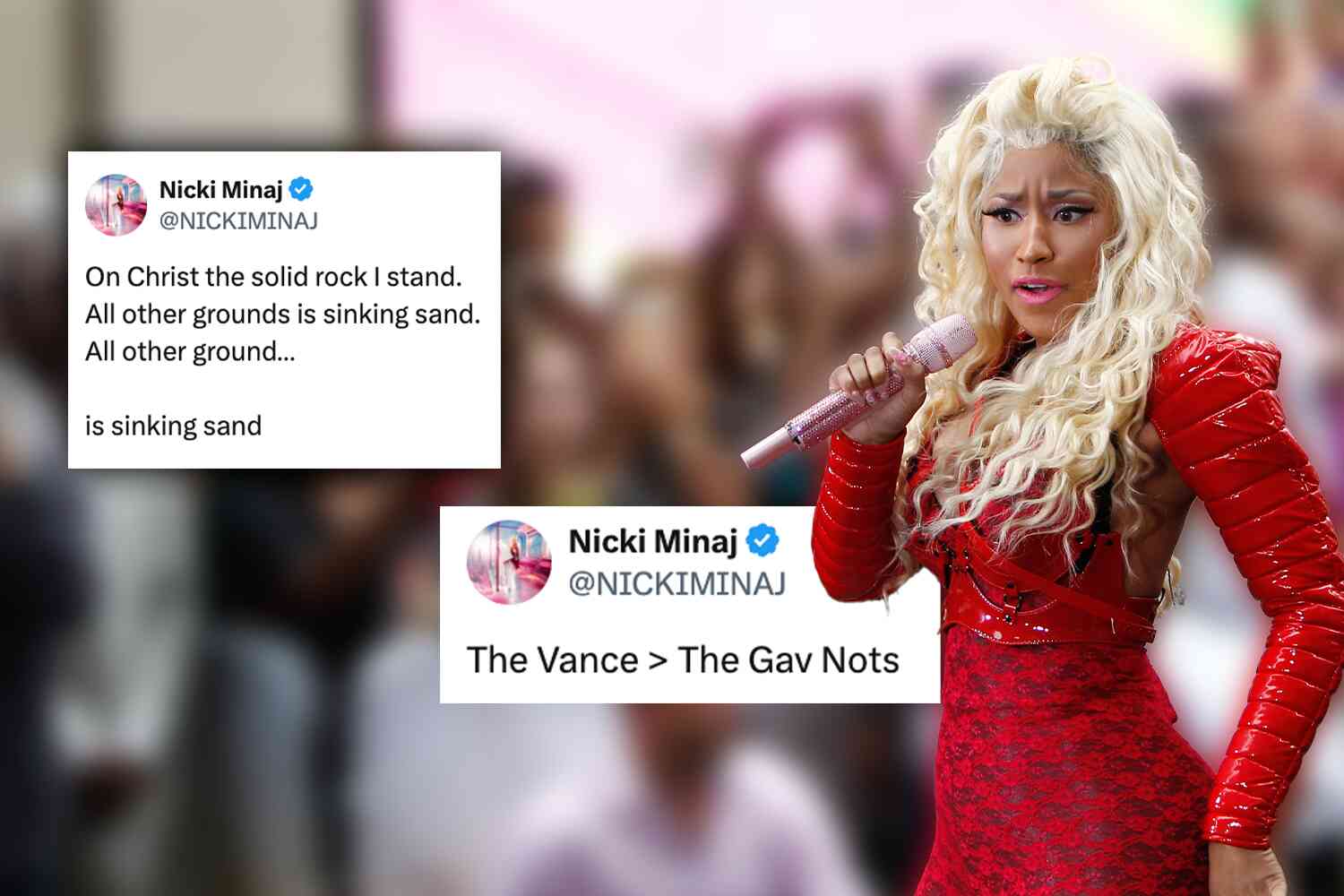Dat spice be flowin'!
The second part of director Denis Villeneuve's adaptation of the Frank Herbert sci-fi absolutely raked in the dollar bills this weekend.
"This is an outstanding opening for a science-fiction (sequel)," says David A. Gross of movie consulting firm Franchise Entertainment Research. "Audiences are connecting with these human, vulnerable (characters)."
Buoyed by positive reviews and glowing word-of-mouth (it has a 94% on Rotten Tomatoes and "A" CinemaScore), "Dune 2" seems to have expanded its fanbase beyond sci-fi buffs and arrived on the higher end of expectations.
Translation: It was a piece of true cinematographic art that spoke to your soul and made your heart wrestle with themes of loss, love, honor, war, and destiny.
And it did so while remaining pretty dang faithful to the book!
I was absolutely shocked that there was no intersectional feminism in this story. I fully expected the white, straight colonizer Paul to be nerfed in this sequel. The first movie kept woke preaching at bay, but Hollywood loves to use the sequels of a successful franchise to screech at us.
You know how movies today look super "clean"? You know how the sets, costumes, and CGI looks like a Teletubby had a baby with a DEI executive?
Like this:
That doesn't look real. It looks like some high school cosplayers decided to put on a low-budget theater production where they made sure the ratio of men and women and white/black/brown people was exactly the same.
But that's actually a big-budget live-action remake of "Aladdin" from Disney, which had a budget of $180 million!
AROUND THE SAME BUDGET AS THIS:
(Okay, the last one is a meme but you know this movie would be better with worm googly-eyes!)
These Dune movies don't feel like you're watching actors pretend. It looks real. It feels real. I am so tired of fake and gay that these Dune movies stand out simply for not being fake and gay.
They aren't filled with corny, wooden jokes and numerous screeds about toxic masculinity and gay love and personal pronouns. There wasn't a slow-motion action sequence of girlbosses about to kick butt.
This was a different universe entirely.
For the first time in YEARS, I felt IMMERSED at the theater.
Like all good art, the futuristic world of Dune mirrors our own. The Fremen in the desert were modeled after the Chechens in Russia who fought against the imperial might of feudal Russia. Since I've studied Arabic, it was a bit jarring to have them use Arabic phrases like "Mahdi" (the messianic figure who is prophesied to rule the world alongside Jesus Christ according to Islamic teaching, but few people are going to be distracted by that.
Frank Herbert made good art by taking something from our world and giving it a unique, distinct feel to capture our hearts and imaginations, and director Denis Villeneuve honored that in this film.
Sadly, the post-modern wokies believe in a sterile, boring world where everything is cUltuRaL aPproPriaTioN and everything must be 100% original or "in your own identity lane," which is a real reason their "art" SUCKS and modern movies bomb at the box office.
This was The Spectator last month:
What a bunch of clowns.
But to tell that Dune 2 was a good movie, you don't need a masterclass in film theory, storytelling, cinematography, theology, or history. You know because the theaters were sold out and the memes, like the spice, are flowing.
Because I haven't drunk the Water of Life, never in a million years would I have seen a Seinfeld-Dune crossover. But here we are, and I love it.
To be fair, there were some changes in the film adaptation that hardcore fans didn't like. But unlike the abomination that is Amazon's Rings of Power series, it didn't subvert and alter the core themes, morals, lore, and characters of the source material.
In the books (SPOILER ALERT), the main character Paul Atreides ends up married to the galactic princess, but he does so to forge alliances and power. He does not love her and refuses to let her bear his children. His real love is Chani, the Fremen warrior who grounds his far-seeing mind. In the film, Chani is resistant to being controlled and unwilling to follow Paul down the path to holy war.
But despite the liberties taken, I would disagree that they made Chani a feminist girlboss.
This isn't like Peter Jackson having the Witch King break Gandalf's staff in the extended edition of "The Return of the King" (shame on you, Peter!). This was a way the filmmakers brought the audience out of the religious fervor around a messianic war.
After all, Paul Atreides is not a messiah. The mythology was spread among the Fremen for hundreds of years through the missionary work of space nuns. They are trying to create their own messiah - a man of their own creation that they can control so that their order can rule the galaxy.
Paul knows he is a false messiah. But if he doesn't usurp that title for himself, then the savage, cannibalistic Harkonnens will rule, or the emperor with his brutal legions, or the space nuns with their sneaky plans.
The next book in the series (spoiler alert again) shows how imperfectly Paul fills out the role of galactic leader, but also how he rises above his imperfection by choosing his own humble destiny. And his love for Chani endures across time and space, until at the end of the book series they are resurrected as clones, destined to be with each other for eternity.
Despite Frank Herbert's agnostic views being expressed in a series where he expounds on this religious devotion as a manipulative, necessary evil of sorts, his myth was rooted in the reflections of our own world. As I'm fond of saying, CS Lewis said that all great myth - the legends and beliefs that endure - are founded in the Truth Myth.
And when we encounter pieces of the True Myth, even if we don't know what it is, it stirs our hearts:
Now what Dyson and Tolkien showed me was this: that if I met the idea of sacrifice in a Pagan story I didn't mind it at all: again, that if I met the idea of a god sacrificing himself to himself ... I liked it very much and was mysteriously moved by it: again, that the idea of the dying and reviving god (Balder, Adonis, Bacchus) similarly moved me provided I met it anywhere except in the Gospels. The reason was that in Pagan stories I was prepared to feel the myth as profound and suggestive of meanings beyond my grasp even tho' I could not say in cold prose ‘what it meant'.
Why does the story of a savior who frees us and beats back the darkness appeal to us? Why does the hero's journey speak to our souls? Why does the story of a man and a woman fighting to make a garden out of deserts ignite something in our hearts?
Because these aren't just stories: They are fragments of The Story - of the God who made beauty and life itself.
Dune 2 continues pointing the way, like the fragments of Paul Atreides' dreams, to that God, even if it never intended it.
Because all great art reflects the world, and thus points to God.
P.S. Now check out our latest video 👇
Disclaimer: The opinions expressed in this article are those of the author and do not necessarily reflect the opinions of Not the Bee or any of its affiliates.









